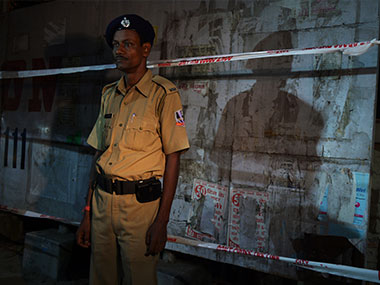Why has poll violence gradually become the rule rather than an exception in West Bengal? How come violence is organised and executed every polling day in the state when no such complaints emerge from anywhere else in the country? Can the Election Commission really ensure free and fair elections in the state? These questions have just one answer ‒ an answer that is obvious, if not well thought through. Political observers, both in West Bengal and the capital, have always blamed the weak presence of central security forces for violence in the state. It’s partially true, because the state police is completely politicised. The process of politicisation began during the tenure of the Left Front between 1977 and 2011. But Mamata Banerjee’s Trinamool Congress government has developed it into a higher art form. From the top bosses of the police down to the lathi-wielding constables, no one seems to have a backbone strong enough to stop ruling party goons from scaring away voters and capturing polling booths. The only solution, therefore, seems to be deployment of central forces in huge numbers to control the goons and protect the voter. In fact, for the third phase of elections, the Election Commission has decided to deploy central forces in 90 percent of the booths in Bengal, which should also keep the ruling party on its toes. [caption id=“attachment_5242561” align=“alignleft” width=“380”] Representational image. AFP[/caption] The situation, as it unfolded till the second phase of the Lok Sabha elections, shows that this solution could at best only be a part of the strategy to bring democracy back to Bengal. The reason is that the election process in Bengal does not really begin on the day election dates are announced and end with the declaration of results. It continues in cities, towns and villages all through the five-year cycle. The ruling parties’ local machinery ‒ comprising largely of goons and their leaders ‒ keep the process going by creating an atmosphere of dread around the potential electorate. All walks of life in every village, semi-urban area and city, is controlled and manipulated by the ruling party. Nothing, repeat nothing, happens without the permission of party leaders. The reason is simple. The rural poor (and the largest vote bank) is dependent on government doles to a considerable extent. The most effective political tool, therefore, is to alienate recalcitrant members of a community who do not support the ruling dispensation and deny them access to government largesse. No police force can solve this problem. The police, after all, can only protect people when there’s visible physical violence. Moreover, even when there’s violence or violation of fundamental rights, which villager has the gumption to go to a police station? Village folk know that they will not be heard, since the policeman’s boss is always a politician. Booth capturing is only a small part of the election strategy. The process gets intensified even before poll dates are announced. The tools used are staging motorbike rallies and squad processions to demonstrate muscle power in the constituency — especially where there’s a concentration of suspect voters — threatening Opposition supporters from street corner meetings and, of course, those proverbial nocturnal knocks on the front door. The penultimate steps against the recalcitrant voter are threats, beatings and murders. On 18 April, during the second phase of the 2019 polls, a huge throng of villagers at Chopra in North Dinajpur district, blocked the highway because Trinamool Congress workers had not allowed them to cast their votes. The first reaction of the state police was to beat up the protesters and tear-gas them in full view of their tormentors. These villagers, though, stood their ground. The most striking footage on the electronic media was that of a lady wailing, “We want to live! We want our rights!” Four hours later, a huge contingent of central forces arrived at the spot and escorted the voters to the polling booth. But the story did not end there. The next day, when there were no security forces around, a huge mob attacked the village with guns and bombs and set most of the houses on fire. By the time the local police managed to reach the spot, half the village had been razed to the ground and almost all the protesters of the previous day had to be rushed to hospital with severe injuries. But why attack them the next day? This is where the ’tricks of governance’ kick in. The protesting village was taught a lesson and an example was set for others for the latter phases of the polls. Has any politician ‒ either of the ruling dispensation or the Opposition ‒ made any noise about the incident? Well, the ruling party denied any involvement, and all that the Opposition could do was whimper. But the protesters have surely learnt how to respect authority. Every election shows just how brittle the common man’s security and his fundamental rights are. Elections come in cycles, but that man on the street has to bend painfully backwards every time he goes to ask for either work under the MGNREGA or his share of various government aids. He knows the bitter truth. He has to either ‘conform or perish’ ‒ even if there are gun-toting central security men deployed all around him.
Why has poll violence gradually become the rule rather than an exception in West Bengal?
Advertisement
End of Article


)
)
)
)
)
)
)
)
)



